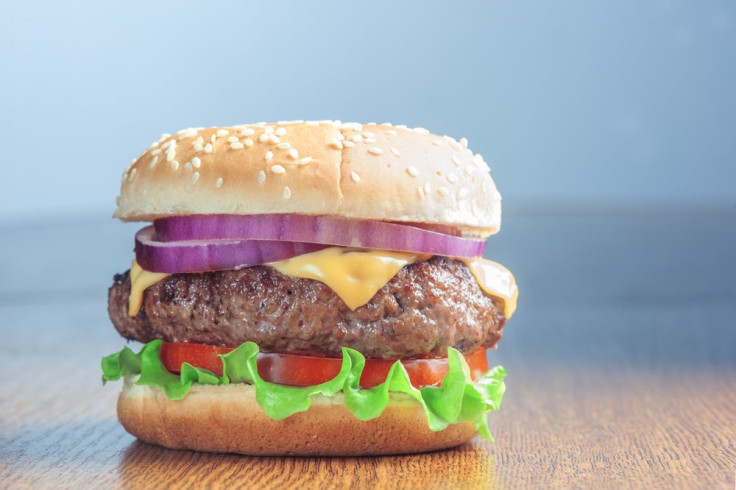Breast Cancer Risk Grows With Red Meat Consumption; What's So Bad About Hamburgers?

Summertime is grilling time for meat eaters all over the United States. Even vegetarians probably can’t deny the happy summertime feeling they get when they smell charcoal burning on a grill — grilled veggies are delicious, too. But as we all prepare for weekly barbecue gatherings, it may be wise to keep in mind a new study, which finds that women’s red meat intake (no, not the burgers!) has been linked to their risk for breast cancer later on in life.
The findings aren’t the first to suggest that eating red meat may contribute to risk of breast cancer, but they are the first, according to the researchers, to find a link in younger adults, whereas previous studies looked at risk in middle and older age. The researchers found that women who ate beef, pork, lamb, burgers, hot dogs, bacon, or sausage were 13 percent more likely to develop cancer for each serving per day.
If the findings are true — the researchers said that more research is necessary — the risk most likely comes from the chemicals created during the cooking process. When meat meets flame, a series of chemical reactions occur between the fire and the sugars and amino acids on the meat’s surface. It’s known as the Maillard Reaction, and is more recognizable as the crusty, burnt taste on brown parts of the meat. These chemical reactions, however, also create chemicals known as polycyclic aromatic hydrocarbons (PAHs), which are known carcinogens.
“We found that high consumption of red meat in women during early adulthood was associated with a higher risk of breast cancer,” the researchers wrote in the British Medical Journal. They said that women who want to avoid this risk begin switching from red meats to poultry, fish, and legumes, which include chicken, turkey, tuna, salmon, beans, lentils, and peas. Participants of the study who tended to eat more of these actually lowered their risk of breast cancer.
For their study, the Harvard researchers looked at data on 88,803 premenopausal women aged 26 to 45 who took part in the Nurses’ Health Study II, and had completed a questionnaire on their diets in 1991. They then ranked meat-eating frequency into nine categories, ranging from “never or less than once per month” to “six or more per day.” They also accounted for various factors such as height, weight, history of benign breast disease, menopausal status, and adolescent food consumption, which included the foods they ate between 1960 and 1980, when they were in high school.
Over the course of the 20-year study, 2,830 women developed breast cancer. Besides the aforementioned result, the researchers found that premenopausal women were 12 percent more likely to get breast cancer with each additional serving of red meat per day, while postmenopausal women were eight percent more likely. Conversely, women decreased their risk by 17 percent every time they substituted poultry for red meat, and 14 percent every time they ate legumes instead.
“This analysis supports an association between higher consumption of total red meat during early adulthood and increased risk of breast cancer that was not clearly restricted to breast cancers in premenopausal women,” the researchers concluded. “When this relatively small risk (13 percent) is applied to breast cancer, which has a high lifetime incidence, the absolute number of excess cases attributable to red meat intake would be substantial, and hence, a public health concern.”
Source: Farvid M, Cho E, Chen W, Eliassen A, Willett W. Dietary protein sources in early adulthood and breast cancer incidence: prospective cohort study. BMJ. 2014.



























